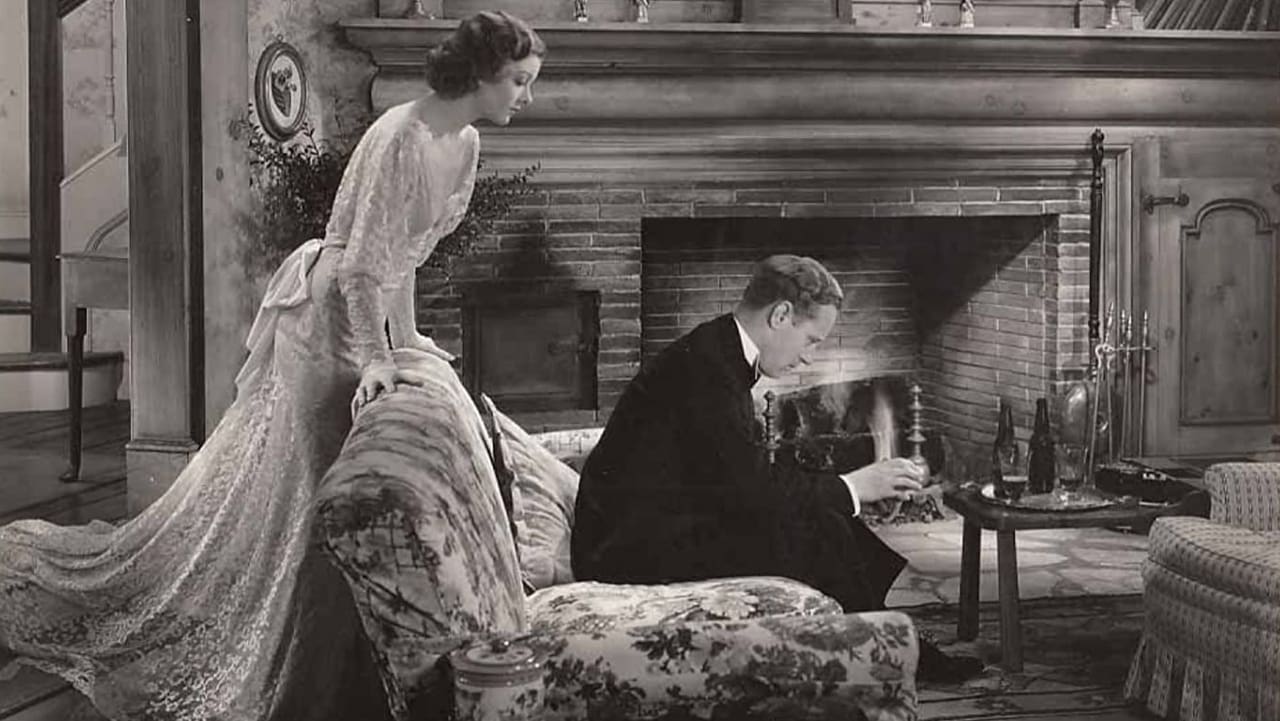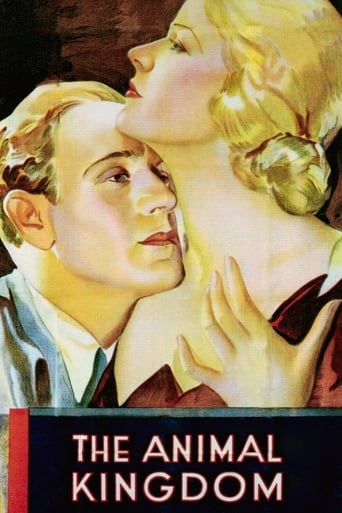

Overrated and overhyped
... View MoreAn action-packed slog
... View MoreInstead, you get a movie that's enjoyable enough, but leaves you feeling like it could have been much, much more.
... View MoreI think this is a new genre that they're all sort of working their way through it and haven't got all the kinks worked out yet but it's a genre that works for me.
... View MoreLeslie Howard is pompous and stiff, playing a character who is the same. Myrna Loy is beautiful, sometimes charming, but also a little stiff. She seems unused to the role of the woman who loses in the end. Ann Harding has always come across as mannered and stiff to me, and this movie is no exception.Being that it is a pre-code, the man is permitted to choose his mistress over his wife-very unusual indeed and you won't see that again after 1934 for many decades. But he knew what his wife was when he married her, yet he acts so affronted and disgusted when she lets him know that she really wants him to accept his father's offer to live in the city, as she is unhappy and bored in the country. She wants a more exciting life.Ann Harding's character seems anything but the footloose artist. She comes across as very priggish and upright to me. Yet we are to believe she is a "free soul". It is even less believable that Howard's character is such a person. They seem like two prigs, who probably do belong together after all.
... View MoreNo doubt about it, Loy commands the screen here, and is worth watching all the way through. Agreed, Ann Harding is stodgy and overdressed for her supposedly Bohemian lifestyle, but she does reflect the earnest sincerity of the Conscious Rebel. The original title "The Woman in His House," suited the story better... Define 'wife', for example. Tom Collier (Leslie Howard) is a man enthralled by a young beauty, and her hold on him is frankly sexual. His previous relationship with artist Daisy (Harding) certainly included sex, but was also built on warm friendship, mutual friends, shared values. They prided themselves on lack of "chains" which later turns into a lack of commitment. Long familiarity had cooled things off enough for Daisy to take an extended trip to Europe. While Daisy was off in Europe working on her art, Tom was at loose ends; his rich father thoroughly disapproved of him because he didn't make enough money. Tom's cozy house full of books looked great to me, but Daddy thought he needed a mansion. Tom had noted there was a depression on, and hired a washed up boxer as a butler so the man wouldn't starve. He appreciates Red Regan (Gargan) for his good humor and warm friendship. Tom loves a beautifully crafted book, and putting them together is his art. As Cecelia (Loy) draws him away from his other sources of joy, he finds pleasure isn't enough to fill the gap left by Daisy's departure, along with all his friends. He's continually pressured to sell his publishing house to the equivalent of Silhouette Romances, and that breaks the spell. The climax - and it does take awhile to get there - is Tom watching Loy display all her wiles while he keeps refilling her champagne glass, and you can see him think about that word "wife." And he's not confused any more. The acting in the last scene between these two is masterly, and well worth the wait.
... View MoreThis dreary adaptation of Philip Barry's Broadway play has two things going for it: a stunning Myrna Loy and some interesting exchanges of dialogue that would have been censored if the film had been released a couple of years later when Production Code enforcement was strengthened. On the whole, however, this film stagnates as filmed stage plays often do. The camera just sits there focusing on people entering rooms and talking, talking, talking. The story is familiar to Barry aficionados: the conflict between the old northeastern Puritan establishment values and the new, modern Bohemian mindset. This conflict is played out by Leslie Howard, nonconformist publisher of arty books whose upper crust traditionalist father disapproves of his offbeat lifestyle. Howard chooses to marry rich girl Myrna Loy while his old friend, whom he really loves but doesn't realize it at the time, is abroad. The latter character is a Bohemian enacted by Ann Harding who at one point says, and I paraphrase, "I have no money but it doesn't bother me." What?! This supposed "Bohemian" lives in a large, spotless, finely appointed apartment with a picture-window view of the East River, is dressed and coiffed as elegantly as any wealthy blueblood and seems to travel the world at the drop of a hat. Anyone with an apartment, wardrobe and lifestyle like that in 1932 could hardly "have no money." *** POSSIBLE SPOILER*** Harding is way too stodgy for her part and we end up sympathizing with the ostensibly cruel, superficial Loy who is actually so sweet, alluring, sexy, gorgeous and youthful that it comes as a shock when she is revealed to be a nasty, hard soul at the end. In addition, although Harding gets top billing with Howard, it is Loy who occupies the most screen time and who rivets our attention. Howard is at first too humdrum to be convincing as an unconventional rebel, but his later actions during intimate scenes with Loy fire up the screen, abetted by suggestive conversation. This is about as far as Hollywood would go in the carnal direction until the 60s. William Gargan is also on hand as Howard's butler who treats his boss as an equal, drinks excessively and launches into talking jags that intrude tiresomely on the business at hand. A similar subsidiary character from a later and far superior Barry film adaptation (Holiday, 1938) serves the story better. The ideal cast for this film would have been Franchot Tone as the lead and Loy/Harding in reversed roles.
... View MoreA film examining character and intelligence, motives and integrity, the artist's life versus the conventional life. It is a love story which depicts love and friendship on many levels. This film is one of those interesting ones where the viewer has to be able to listen to dialogue and interpret meaning. There are subtle interactions between the characters and a civilized, low-key ambiance.
... View More